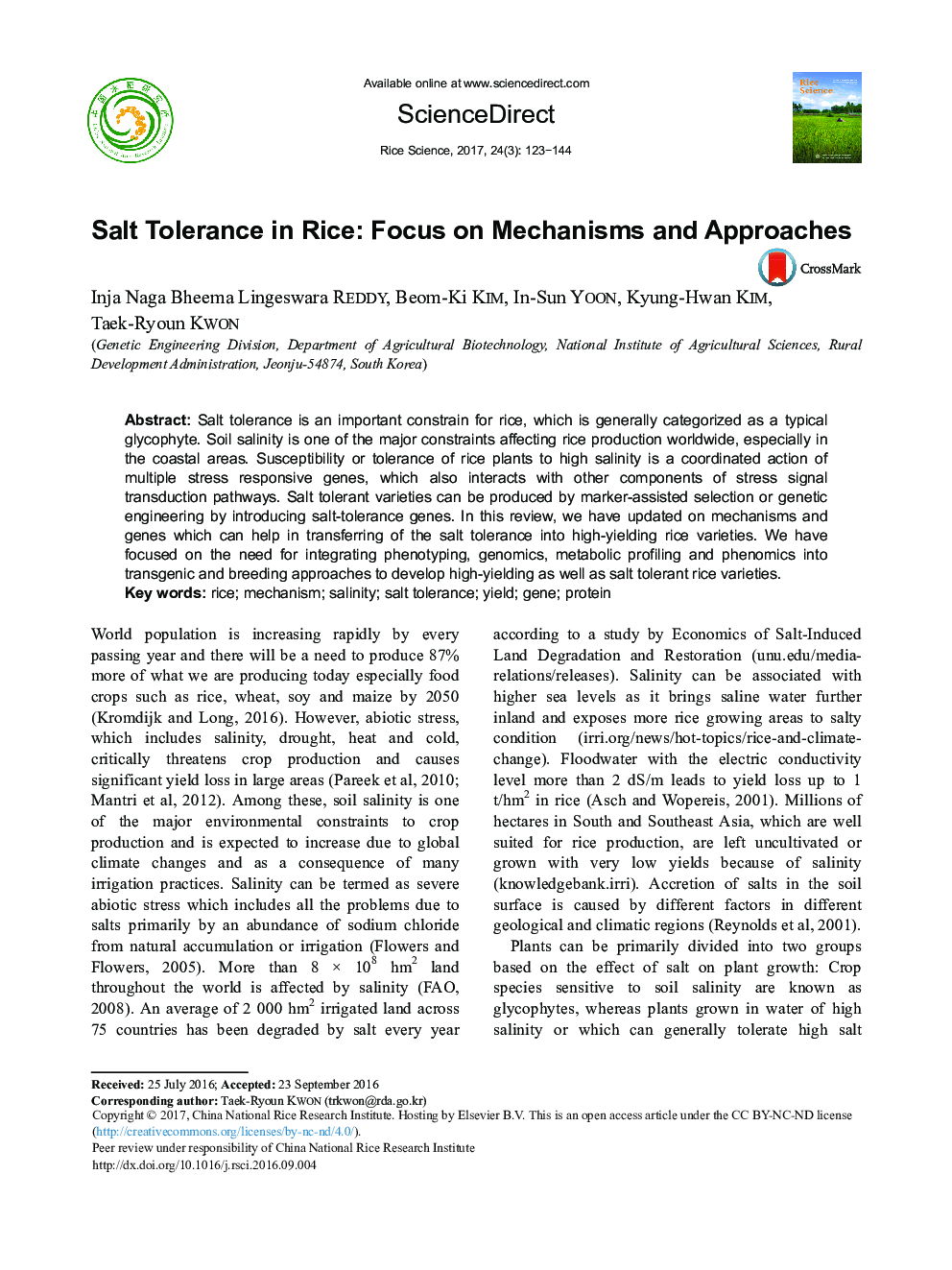| Article ID | Journal | Published Year | Pages | File Type |
|---|---|---|---|---|
| 8877360 | Rice Science | 2017 | 22 Pages |
Abstract
Salt tolerance is an important constrain for rice, which is generally categorized as a typical glycophyte. Soil salinity is one of the major constraints affecting rice production worldwide, especially in the coastal areas. Susceptibility or tolerance of rice plants to high salinity is a coordinated action of multiple stress responsive genes, which also interacts with other components of stress signal transduction pathways. Salt tolerant varieties can be produced by marker-assisted selection or genetic engineering by introducing salt-tolerance genes. In this review, we have updated on mechanisms and genes which can help in transferring of the salt tolerance into high-yielding rice varieties. We have focused on the need for integrating phenotyping, genomics, metabolic profiling and phenomics into transgenic and breeding approaches to develop high-yielding as well as salt tolerant rice varieties.
Related Topics
Life Sciences
Agricultural and Biological Sciences
Agricultural and Biological Sciences (General)
Authors
Inja Naga Bheema Lingeswara Reddy, Beom-Ki Kim, In-Sun Yoon, Kyung-Hwan Kim, Taek-Ryoun Kwon,
